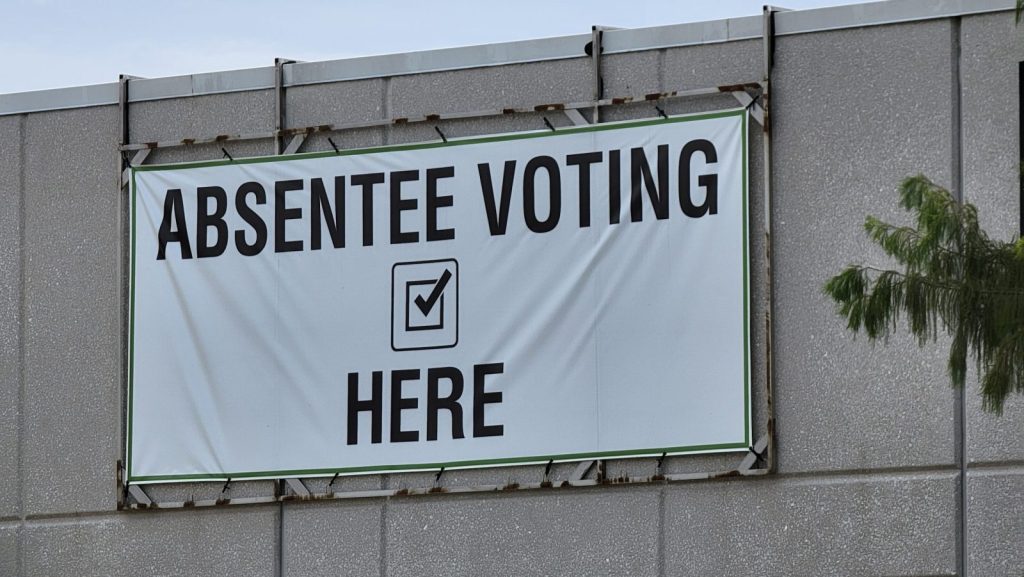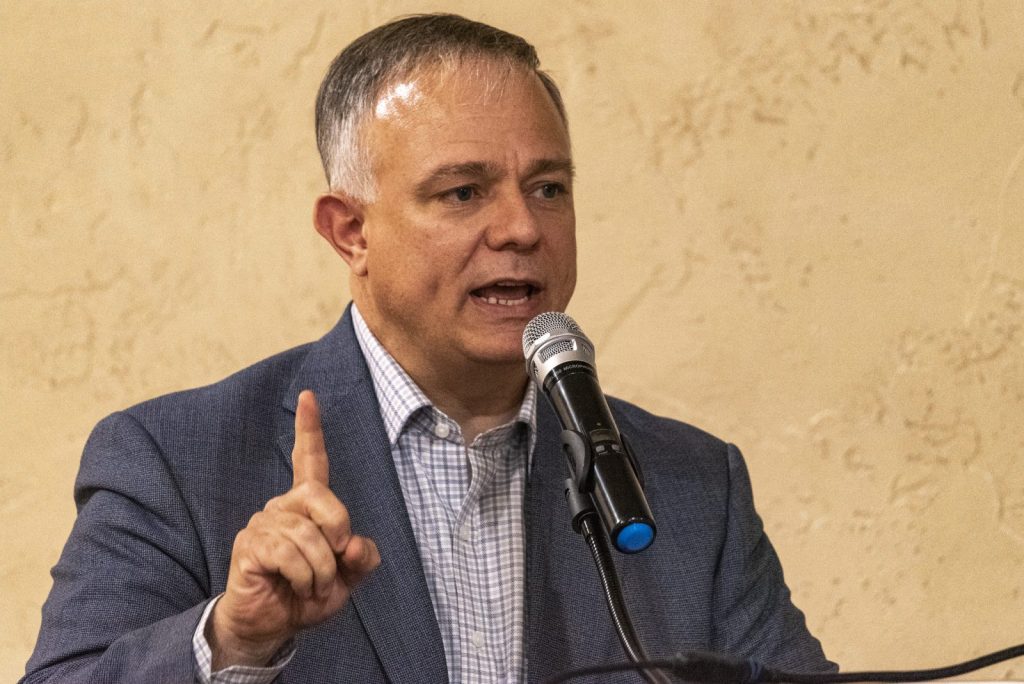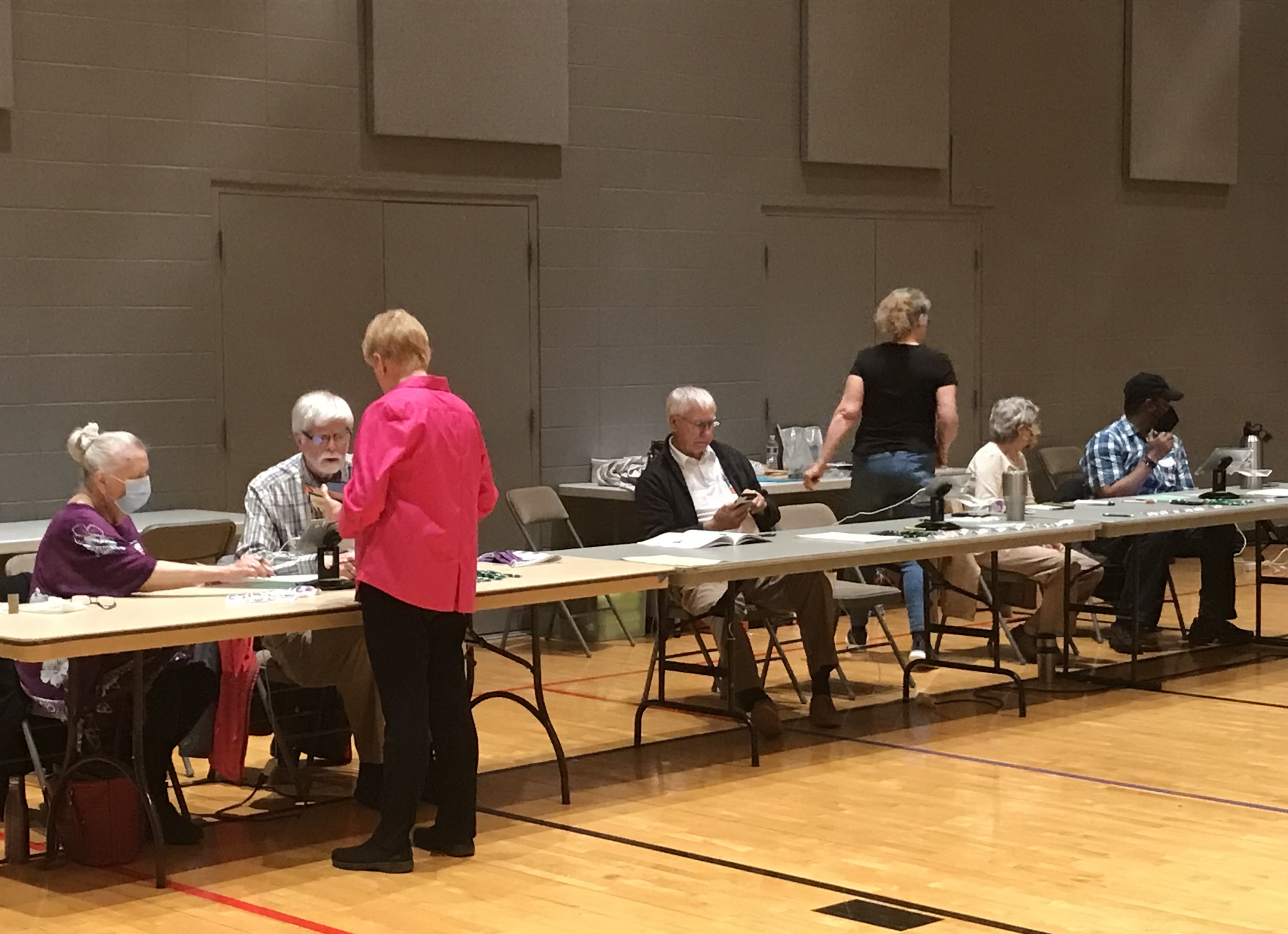All Missouri residents will need a photo ID to vote in the Nov. 8 election unless lawsuits filed by the Missouri Voter Protection Coalition change things.
Missouri House Bill 1878, set to go into effect Aug. 29, creates a new set of voting regulations that have confused local authorities and upset some statewide organizations.
The biggest changes due to House Bill 1878
- A photo ID will be necessary to cast a ballot
- All absentee ballots must be filed in-person
- Voting solicitors must register with the Secretary of State (if registering 10 or more voters)
- Bans paid solicitors
- Gives Secretary of State power to audit electoral rolls
How 1878 affects voters
Those looking to register to vote and those who are already registered will have to do some extra reading before the November election to make sure they come to the polls with the right information.
Staff attorney for the Missouri Voter Protection Coalition, Denise Liberman, believes this bill has a chance to impact voter turnout at the Aug. 2 election. She expects “dozens” of calls on election day from confused voters
Previously accepted voter identification cards will no longer be a viable source of identification. Instead, only Missouri driver’s licenses, Missouri identification cards, passports and military IDs will be accepted. These forms of identification also must be non-expired.
Missouri will now be offering “no excuse” absentee ballots, meaning that if a registered voter with proper identification wants to vote two weeks before election day, they may without any reason why. However, these ballots must be cast in person at local election places.

House Bill 1878 also prohibits future use of electronic voting machines, so anyone who previously needed to use the voting machines will now have to have their ballot read aloud and answered verbally by election staff.
Any electronic voting machines that break will not be replaced and House Bill 1878 bans the use of all electronic voting machines by 2024. This can be a setback for people with disabilities, especially those who are visually impaired, because it forces them to rely on another person to cast their ballot, limiting their independence and privacy.
While some provisions of this bill can be considered barriers to voting, others changes make voting less complicated. For example, voters can now “change an address in person on election day,’” according to House Bill 1878.
Future action
Liberman, the attorney, is working through the Missouri Voter Protection Coalition to file a lawsuit to challenge the photo ID provision, hoping to block the requirement from going into effect before the November election. She believes the suit would have a high chance of winning, as the Missouri Supreme Court has previously overturned photo ID requirements.
“There are provisions of this law that are clearly unconstitutional and illegal as written,” Liberman said. “There are other parts of this law that really have the potential to open the door to be problematic.”
Liberman is hoping to file another lawsuit to challenge the absentee ballot provision on the grounds of the First Amendment before the law goes into effect.
Liberman is also considering taking her case to a federal level since she believes the bill violates federal law.
“A democracy only functions when everyone is included,” Liberman said.
How it affects voters registration
A provision of this bill requires any person who registers 10 or more citizens to vote to register with the Secretary of State’s Office as a deputy registrar.
Language in the bill is vague, so it is unclear how or when that registration will occur, according to Greene County Clerk Shane Schoeller.

Schoeller works with local voting organizations such as the local chapter of the League of Women Voters to help register people to vote. Neither Schoeller nor Joan Gentry, voter services chairperson of the League of Women Voters, are sure what the future voter registration process will look like.
There also may be no paid voter solicitors, people who register citizens to vote, according to House Bill 1878.
Due to unclear language in this bill, most voter registration organizations are canceling voter registration drives to avoid accidentally violating the bill, according to Liberman.
Increased power to Secretary of State
House Bill 1878 also gives an increased amount of power to the Secretary of State regarding voter registration.
Once the bill takes effect, the Secretary of State will have the power to cut funding from voter education programs, and “audit the list of registered voters for any local election authority to ensure accuracy,” according to House Bill 1878.
This includes removing registered voters from the list and withholding funding for local elections if local election officials do not make the required changes within 90 days of notification.
Opinions vary on impact of the bill
Gentry and Liberman believe this bill will make it harder for people to vote, and expects a lower voter turnout from minority voting groups, such as senior citizens, people with disabilities, college students and people in a low-income bracket.
Schoeller expects little change in voter turnout in Springfield. He believes people who want to vote in Springfield are likely already registered and diligent about voting requirements.

However, he is concerned about the solicitor provision of this bill because the bill’s language is not clear as to how deputy registrars, people who register citizens to vote, are supposed to obtain certification from the secretary of state. This creates potential difficulties for Schoeller’s voter registration process.
“We’re not pleased with the way voter rights is moving in Missouri,” Gentry said. “We feel, as a League, that there are portions of this bill that would make people think our elections are fraught with fraud and that is not the case.”
“These communities that are sort of left out of the process because of barriers, they’re just not going to vote,” Liberman said.
Some state authorities believe this law will create safety instead of barriers, removing any doubt of voter fraud.
“I believe when HB 1878 becomes law Missourians can be assured that their votes will be counted correctly and there will be many safeguards in place to prevent voter fraud,” State Sen. Sandy Crawford, R-Buffalo, said in a press release.
State Rep. John Simmons, R-Krakow, believes “a photo ID requirement is but one common-sense measure the vast majority of Missourians support.”
Republican Gov. Mike Parson believes provisions of this bill will block any “emerging threats” attacking voting safety.


